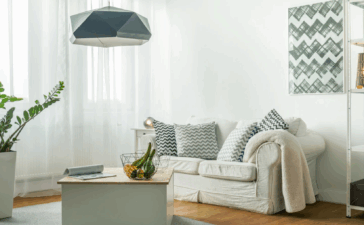There is a reason why quartz bathroom countertops are the king – they look great and last long. Whether you are designing a new bathroom or remodeling your old one, picking the right countertop is an essential step. A quartz bathroom counter is one of your options. Others include granite, marble, concrete, and wood. While all these bathroom countertop materials are excellent, the best countertop for the bathroom remains quartz.
If you are considering quartz for your bathroom counter, then you are making the right choice. You will pay relatively more to install your counter, but you will reap lots of benefits after installation. Read on to learn more.
Pros and Cons of Quartz Bathroom Countertops
Quartz is not a humanmade material, as some people believe. It is a natural mineral with silicon and oxygen and the main components. To make countertops, however, manufacturers grind quartz and mix it with resins, polymers, and pigments. The polymers and resins will bind the quartz together for strength and durability while the pigments give it color.
Pros of Quartz Counters
Durability
Quartz lasts relatively long. It is resistant to scratch, cracking, and chipping. When quartz was first engineered in 1963, the goal was to create a counter more durable than natural stone. The countertops were thus engineered resistant to simple damages in kitchens and bathrooms. Again, during the manufacturing process, manufacturers can add any pigments to give patterns and colors that everyone will love.
Being one of the hardest minerals on earth, quartz will live as long as your bathroom. However, this does not mean that the counter is indestructible – you still need to take good care of it.
Lifetime Warranty on Quartz
Thanks to the durability of quartz, you will get a lifetime warranty when you install quartz. For instance, when you buy Caesarstone’s quartz countertops, you get a residential lifetime warranty that can be transferred from one owner to the next. Once transferred, the warranty runs for ten years. However, note that the warranty will not cover outdoor use or abuse of the counter.
Other companies offer lifetime warranties and others at least 25-year warranties.
Aesthetic Appeal with So Many Choices
There are so many designs to choose from, so many pigments, and finishes. The choices are almost endless with quartz. As such, you can have a unique finish. For natural stones such as granite, you are limited to the colors and pigments that nature gives. However, for quartz, any pigments can be added during the manufacturing process.
When shopping for quartz countertops, consider the backsplash and the cabinet colors. Better yet, some manufacturers allow you to customize your quartz countertop.
Maintenance-Free and Stain Resistant
Quartz is nonporous – it does not allow water and other liquids to seep through. This way, the countertop does not develop stains, and this maintains its look and its structural integrity. Besides wiping the counter and ensuring you do not expose it to extreme temperatures, no other maintenance is needed.
Other materials are porous and allow liquids to pass through. To protect them, you need to seal them regularly. The fact that liquids do not seep into the counter means that bacteria and other microorganisms do not propagate. This makes your quartz bathroom counter a health option.
Versatile
You can use quartz countertops anywhere in your house, including your bathroom, kitchen, fireplace, and bars, among other places. The wide range of colors, patterns, and finishes makes the material ideal for any home. You can match your countertop to any design in your home.
Cons of the Best Countertop for Your Bathroom
Even with the few downsides below, quartz still rules.
Relatively pricey
Anyone on a tight budget will find quartz very expensive. The durability, nonporous nature, a vast collection of designs, and that fact that you can customize your bathroom counter comes at a price. For every square foot of quartz, you will pay between $50 and $150 – the cost is dependent on the manufacturer, the style, design, and edging. The most cutouts you need for the best sink for quartz countertop and soap dispensers, the higher the cost.
However, quartz is not exorbitantly pricey. The average cost of quartz is $75, which is only $15 higher than a square foot of marble.
Cracks when Exposed to Heat
Quartz is pretty resistant to heat, but it has limits. While natural quartz will resist heat, the resins and polymers that make quartz countertops will melt when exposed to high heat. This can cause discoloration or permanent damage to the counter.
Some quartz countertops can handle up to 150 degrees without any damage. Others can handle up to 300 degrees comfortably – it depends on the manufacturer and the resins used. As such, you need to keep your counter protected from fire.
Made for Indoor Use Only
You cannot use quartz outdoors. Again, you might want to set your bathroom countertop materials away from the side that gets UV rays from the sun. When exposed to UV light, the pigments on the countertop will fade, and the great look of your countertop will be gone. However, inside your bathroom or kitchen, the color of your countertop will flourish for decades.
A Professional Needed for Installation
You cannot install quartz countertops after reading a few installation articles online. The countertop is extremely heavy. Before installation, the installers need to ensure the foundation is secure and strong enough to handle the quartz countertop. Again, the slab needs to be positioned in such a way that steams are not visible, a feat that is extremely challenging for inexperienced installers.






